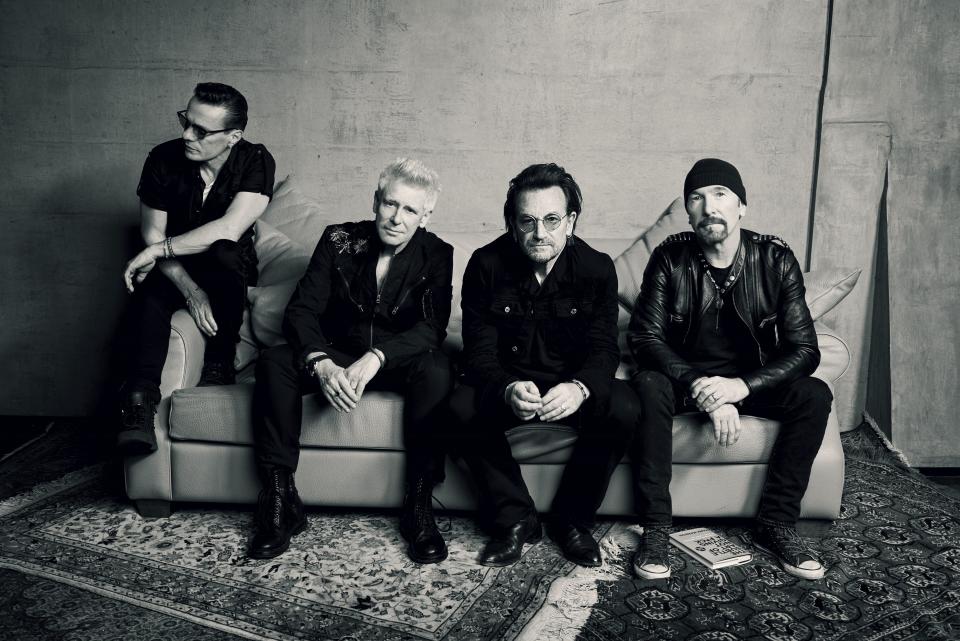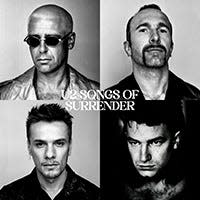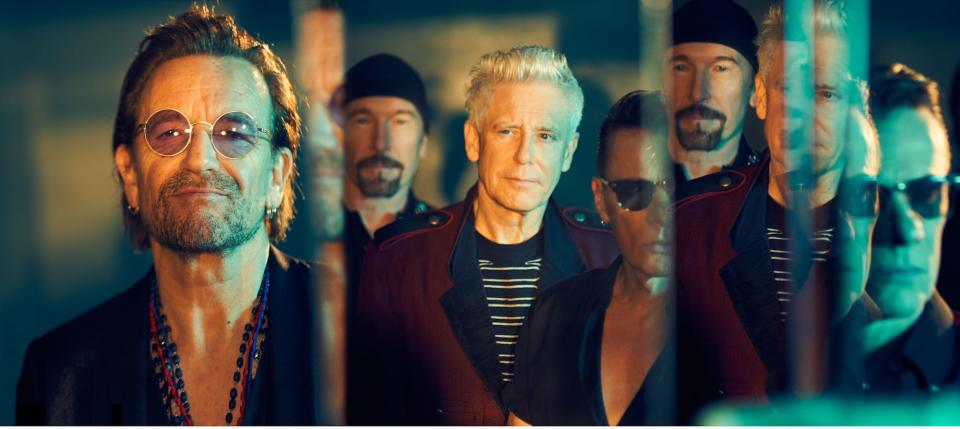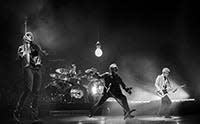U2 rerecorded 40 songs. Here's why and which tracks really work.
With age, comes reflection.
U2 has been a brotherhood since 1976. Through stadium sellouts, hundreds of millions of albums sold, questionable professional choices (PopMart Tour, anyone?) and expected musical squabbles, Bono, the Edge, Larry Mullen Jr. and Adam Clayton have remained an original union, an anomaly in rock ‘n’ roll.
The most logical reason U2 chose to reimagine 40 selections from their 14-album catalog for “Songs of Surrender,” to be released in tandem with the Bono/Edge Disney+ documentary on March 17, is because life changes. Perspectives shift. Emotions spiral. Walking into the wind feels a little harder each year.
Some of these songs are worn into the crevices of our souls from years of listening. Others are newer offerings unduly forgotten. All of them were rerecorded within the past two years, many with tweaked lyrics.

Bono surrenders: Mortality, Sinatra and 'ugly pop songs' discussed in memoir
Not everything works. “Pride (In the Name of Love)” is pretty, if toothless while the quirky reworking of “Desire” prompts a smile – which probably wasn’t U2’s intent.
But much of the album hits. Here are a dozen highlights on “Songs of Surrender.”
‘Beautiful Day’
The electrifying pulse is still there, just in the form of piano notes, a steadily strummed guitar and a shuffling drumbeat. There are lyrical modifications to the bridge – moving the narrative into the past tense and adding imagery about Adam and Eve – but the closing mantra of “what you don't have, you don't need it now” with a choir rising behind Bono’s voice sounds as important as ever.
‘Bad’
Written about the tragic effects of heroin on a good friend, the song from 1984’s “The Unforgettable Fire” has always mesmerized, its tormented verses seesawing with a hopeful chorus. Even without Mullen’s bass drum providing the song's heartbeat, it’s still evocative. The heavily modified lyrics – “if I could, through myself, set your spirit free” now reads, “if I could ask for help, I know what you would say” – tell a slightly different story.
‘Stuck in a Moment You Can’t Get Out Of’
Bono’s breathy vocals, the simplicity of the acoustic guitar and a gentle undercurrent of percussion perfectly frame a ballad about being unable to see through the darkness. Bono wrote the song as a message to INXS’ Michael Hutchence, his close friend who died by suicide in 1997, and for anyone moored by depression. The Edge’s honeyed upper range on background vocals is tear-inducing, but the gripping kicker is Bono’s plea, “it’s just a moment … this too shall pass.”

‘City of Blinding Lights’
The mellifluous piano that gets buried under the big scale of the original takes the spotlight, a silky counter to Bono’s slightly ragged vocal. Smartly, both the song’s most profound lyric – “Don’t look before you laugh/look ugly in a photograph/flash bulbs, purples irises, the camera can’t see” – and that stunning “oh, you look so beautiful tonight” chorus (inspired after playing a show at Madison Square Garden shortly after 9/11) remain intact.
‘I Will Follow’
The chiming guitar riff that intros the first song from the band’s first album (1980’s “Boy”) is still its North Star. But this is not the brawny bellowing of a young, mulletted Bono, who wrote the rocker in tribute to his mother, who died when he was 14. By subtly tweaking the line, “a boy tries hard to be a man, his mother takes him by his hand” to “his mother lets go of his hand,” Bono continues to embed her influence. Decades later, the boy has been set free.
‘Walk On Ukraine’
U2 reworked "Walk On" from its 2000 album "All That You Can't Leave Behind" in April 2022 as an anthem of hope for war-ravaged Ukraine. The song takes a different approach from the opening stanza: “This is not a curtain call/this is the greatest act of all/stand up for freedom.” A lovely choir is summoned midway through and the song’s pinnacle – its bridge – soars with fresh words of encouragement.

‘Stories for Boys’
Originally recorded for their debut EP, “Three,” and rerecorded for “Boy,” the simple tale is a worthy snapshot of then and now. Piano replaces the caffeinated guitar and drums that propel the original as the new rendition captures Bono (with Edge on backing vocals) in a contemplative mood. The band hasn't played the song live since 1982, so its inclusion is complete nostalgia.
‘Vertigo’
Strings and roughly strummed acoustic guitar replace the slashing intro from this "How to Dismantle an Atomic Bomb" track. In the creative reworking of one of U2’s most kinetic offerings, Bono’s vocals still escalate with the intensity to incite an arena singalong and the punky “yeah, yeah, yeahs” that close the song rattle effectively.
‘I Still Haven’t Found What I’m Looking For”
Bono mostly recites the lyrics rather than sings them, but the plaintive resignation buried in the song’s lyrics sound especially weary. Percussion skips like a kid bopping through hopscotch squares, and we’re left wondering if whatever Bono – or any of us – is looking for will remain elusive.

‘Where the Streets Have No Name’
The absence of the thrilling jangle that is the song’s signature suggests a limp revision, but the synths building under Bono’s intentionally creaking voice appropriately capture the slow burn. It’s a grandiose song – and a heart-pounding concert highlight – skillfully stripped to its fundamental construction.
‘Cedarwood Road’
Though written about the street where Bono grew up in Dublin, the 2014 “Songs of Innocence” track is not necessarily nostalgic, but a reflection of our origins and the things worth remembering – as well as the ugly scars. “The hurt you hide, the joy you hold” is its most reflective lyric, as acoustic guitar builds and drops in an ominous cadence.
‘40’
The band frequently ends its shows with the quiet hymn interpreted from Psalm 40 in the Bible, leaving the stage one by one as the refrain “how long to sing this song” echoes. The song is 40 years old, yet its ultimate message of hopefulness – unfolding as a joyful prayer – resounds.
This article originally appeared on USA TODAY: U2 rerecorded 40 songs for 'Songs of Surrender' album
